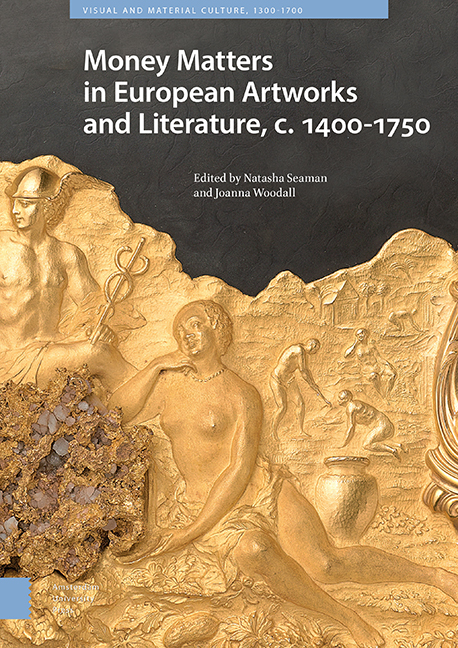6 - Identity, Agency, Motion: Taylor’s Twelvepence and the Poetry of Commodity
Published online by Cambridge University Press: 15 September 2022
Summary
Abstract
“Identity, Agency, Motion: Taylor's Twelvepence and the Poetry of Commodity” examines John Taylor's 1621 curious poem A Shilling or, the Travailes of Twelve-pence as a record of one keen observer's attempt to grapple with the rapidly changing social and economic dimensions of seventeenth century London. The essay argues that as the poem re-imagines the shilling as a person with a life history and agency of its own, it bears witness to a human world increasingly defined by relations with money and marked by the weakening of social ties (exemplified by the slavery that haunts the twelvepence's travels). The humanizing and centring of the coin provokes a dehumanizing and de-centring of its human servants, including the poet himself.
Keywords: coins, pamphlet literature, early modern economy, materialism
John Taylor's 1621 comic work A Shilling or, The Travailes of Twelve-Pence – first printed and distributed in pamphlet form and later included in All the Workes of John Taylor – presents a series of conceits, alternately funny and moralistic, describing the “life” of money (in the world, in England, and especially in London). The 1621 pamphlet, which would have been cheap to buy and read by an increasingly literate public, includes a brief advertisement, a frontispiece with a short explanatory poem (“The Meaning of the Picture”), a letter to the reader (“To the Reader”), and the 910-line poem itself (“The Travels of Twelve-Pence”). While the most impressive explosion of cheap print did not occur for another 20 years, Taylor's text may have had a quite varied readership. In The Marketplace of Print, Alexandra Halasz explains that cheap pamphlets behaved like printed gossip, and that “[t]he development of the marketplace [for cheap print] coincides with the rise of the vernacular as a religious and literate language and an increase in literacy not to be equalled until the eighteenth century, at least in England.” Deborah Valenze notes that we can judge the pamphlet's popularity by the many imitations it engendered.
The poem is an amusing jumble, a grab-bag of extended metaphors, catalogues, and semi-philosophical reflections, a collection of poems enjambed uncomfortably into a single dizzying, disjointed stanza only very occasionally divided by horizontal lines.
- Type
- Chapter
- Information
- Money Matters in European Artworks and Literature, c. 1400-1750 , pp. 179 - 200Publisher: Amsterdam University PressPrint publication year: 2022

